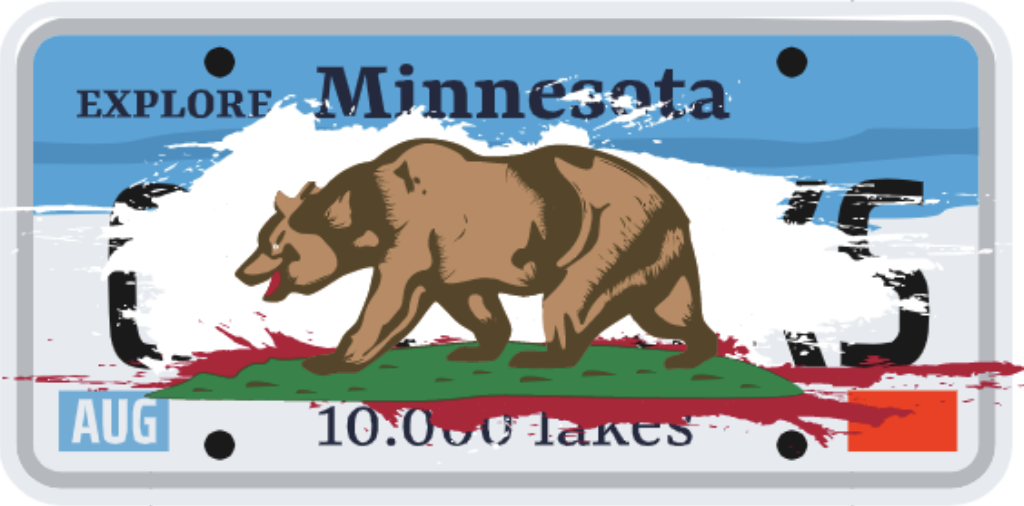Unwelcome imposition
California imposes strict clean car policies on the state’s auto dealerships — so why should Minnesotans have to pay the price?
Minnesota auto dealers want to strike down California’s clean car mandate in Minnesota.
California’s clean car rules require auto dealers to offer a minimum number of zero-emission vehicles (ZEVs) and low-emission vehicles (LEVs), even if there’s no consumer demand for them.
“It’s a supply mandate,” says Scott Lambert, president of the Minnesota Auto Dealers Association (MADA). “That’s a dangerous thing in the vehicle world.”
Minnesota adopted the California rules in December 2021. The rules require that 35 percent of vehicles that manufacturers sell to dealers be ZEVs by 2025. And by 2035, no dealer will be allowed to sell new gasoline-powered vehicles.

The rules were created by the California Air Resources Board (CARB) and have been adopted by 17 states, including Minnesota. Because they were adopted “as amended,” any changes CARB makes must be incorporated in Minnesota.
“These rules actually allow [CARB] to literally make new rules that automatically become part of Minnesota’s law,” says James Dickey, senior trial counsel at the Upper Midwest Law Center (UMLC).
Represented by the UMLC, MADA filed a petition for declaratory judgment last June in the state Court of Appeals. They hope the Court will overturn it.
“It’s a violation of Article 1, Section 1 of the Minnesota Constitution,” explains Dickey, “because all power is vested in the people of Minnesota — not another state.”
The rules require all vehicles sold by manufacturers to be certified by the California standards incorporated in Minn. R. 7023. During the rulemaking process, the Minnesota Pollution Control Agency (MPCA) admitted that the rules will increase car prices by at least $900 for ZEVs and $1,139 for LEVs.
Because neighboring states don’t have the same requirements, auto dealers in Minnesota are put at a serious competitive disadvantage. Dealers in Fergus Falls, for example, report that around 40 percent of their sales come from out-of- state customers — a share that would drop dramatically should their prices artificially rise.
Offering a car that no one wants comes with a price. Auto dealers pay the manufacturers up front for their inventory, so every day that a car sits on their lot costs them money.
UMLC and MADA, which represents hundreds of Minnesota auto dealers and 98 percent of the market, believe the state’s adoption of the California rules was impermissible for three reasons.
First, delegating rulemaking power to another state’s board violates Minnesota’s sovereignty. Both the state constitution and Minnesota statute prohibit this. Furthermore, because the rules were adopted “as amended,” any changes CARB makes must also be imposed on Minnesota.
“There is a false narrative that these rules are simply ‘modeled’ after California’s,” says Amber Backhaus, vice president of public affairs at MADA. “That is 100 percent false. Our rules have to be identical to theirs.”
Second, the MPCA itself does not have the authority to make future rules via an “as amended” provision. While the rules were adopted “as amended,” the MPCA claims to distinguish between “major” and “minor” amendments. Minor amendments made by CARB would be automatically adopted in Minnesota, but any major changes would have to proceed through the standard rulemaking process.
However, the MPCA has the sole decision-making power to determine what qualifies as a major or minor change.
“It gives unbridled discretion to agency officials to adopt or reject new rules without going through new rulemaking,” Dickey says.
Third, Minnesota is unable to adopt California’s rules because the state does not qualify for a waiver from the Clean Air Act (CAA). Federal law requires uniformity in states’ emissions regulations; California does not meet federal pollution standards, so the state was granted a waiver to enforce emissions rules stricter than those of the CAA.
However, Minnesota is fully compliant with the Act.
“There is not a single location in Minnesota that is not meeting federal air quality standards,” says Dickey. “Minnesota simply doesn’t have California problems.”
Proponents of the California car rules point to a non-attainment plan in Eagan as proof of failure to meet the federal standards. But Eagan reached attainment status in 2015 — the plan just hasn’t been abolished yet. And the city’s non-attainment is related to lead, not air quality.
“If you’re going to adopt a rule, it should relate to a problem that exists,” Dickey says.
For MADA, this petition for declaratory judgment is just the latest step in a long fight against the California clean car rules.
“We’ve been fighting politically from the start,” Lambert says. “It’s been three long years.”
They filed a federal lawsuit against the Walz administration in January 2021 to prevent the rules from being established, but the challenge was struck down as premature.
Now, MADA has asked the Court of Appeals to decide whether the adoption of these rules is permissible.
“Dealers are all in for the adoption of EVs and are making sizeable investments in their businesses to get ready for an expected increase in demand,” Lambert said in a statement. “But they’re making plans based on consumer appetite, not what California dictates.”